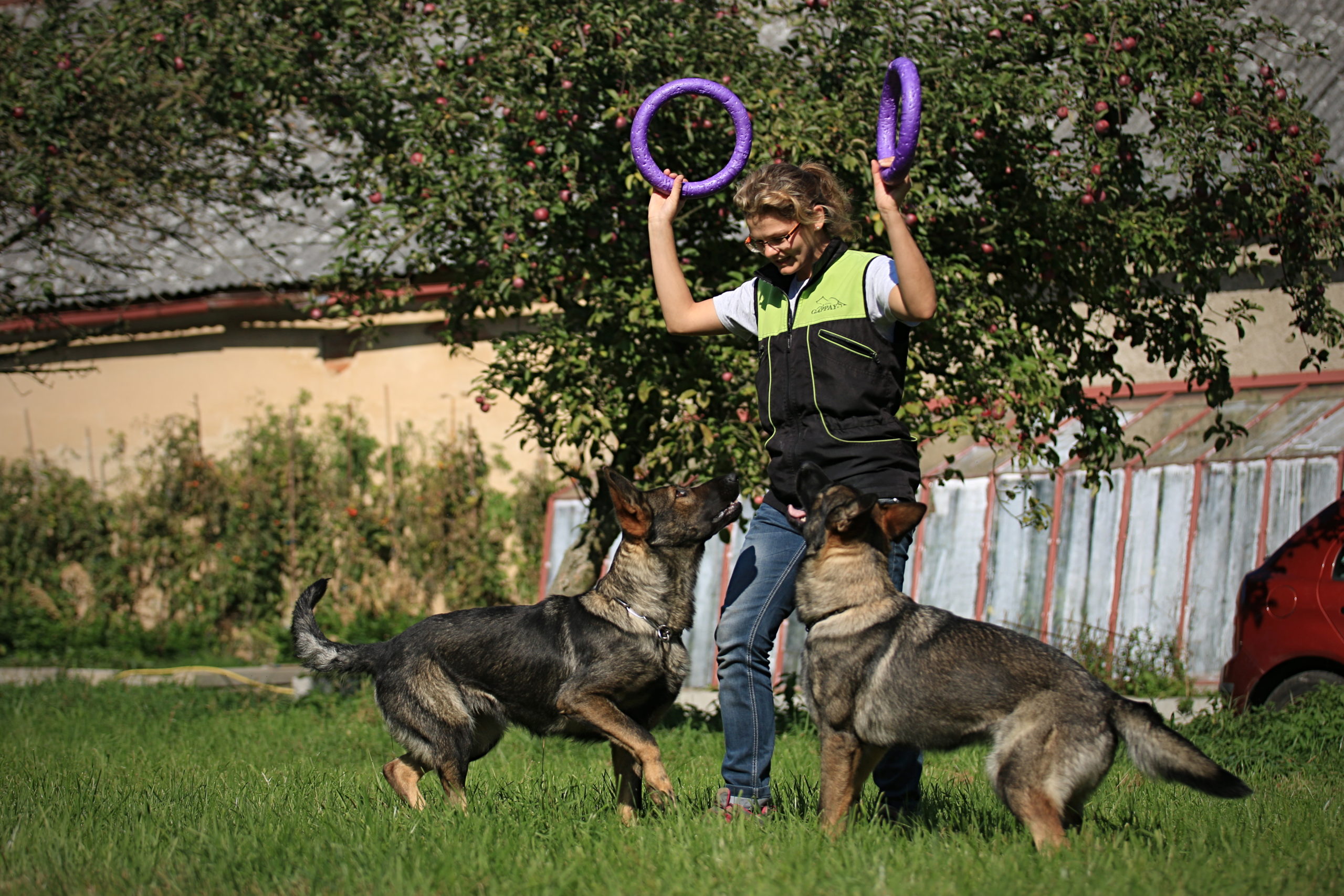
23 Lis The awesome dogs I have worked with – Forgiving and unforgiving
This Is the first article in a recurring series I would like to write, about some of the most memorable dogs I have worked with. Every dog is unique and deserves an article of their own, but some of their stories can teach you valuable lessons to use in your own training, as it is with these two german shepherd siblings.
Brother and sister training hard
The two puppies, a male and a female, were from the same litter and I had the privilege of both their handlers coming to train with me. They were both growing into very good dogs with heart, strength, and dedication. Eventually, with great obedience routines, they were on their way to their IGP trials and competitions (what was back then still called the IPO).
At first, they seemed much alike in both their strengths and their weaknesses. They were both fast, highly energetic, great retrievers with nice jump styles, which on the flip side, understandably, created problems for them with the more static exercises like the long down, holding the dumbbell, etc.
But as I was training them for a longer period of time, I noticed one important difference. The female was progressing faster as time went on. Even though their handlers were both training them approximately equal amounts, the female was progressing faster and I couldn’t really figure out why.
Forgiving and unforgiving dogs
Both of the handlers made their share of mistakes, as anyone would. The difference, however, was in the way their dogs reacted to these mistakes. The female was gentler in nature, and that manifested in her being much more forgiving than the male. I was astonished when I found out how huge the consequences of this can be in the training of a dog.
When the male’s handler made a mistake, like not rewarding him correctly while heeling, the male would take advantage of it immediately. In one week, he shifted his heeling position from a near-perfect one to being way too far forward and obstructing his handler. It took some serious work to convince him to correct that.
The female, when being rewarded in a similarly wrong way, was still heeling very well even after some time of this happening. When I corrected the mistake in our next training session, she gladly continued heeling like she was supposed to. She tried really hard to figure out what it was her handler wanted and really wanted to do it correctly. She was a real sweetheart and saved her handler’s ass at numerous trials.
The male was the other way around. He viewed training as a sort of challenge. He poked and tried, examined and experimented, trying to find any cracks in his handler’s method and approach. If he found any, he would immediately take advantage of them to make his training easier and he drove his handler crazy constantly trying to outsmart him.
Now, don’t get me wrong and think that the male dog was somehow bad (or even worse) than the female. That wouldn’t be fair to say. The female was easier to train, but the male was much more resilient, much more stable once outsmarted, and properly trained. Every dog has upsides and downsides. It is our role as handlers to compensate for their weaknesses and take advantage of their strengths.
Different routes to success
As I mentioned,both of these dogs had lovely obedience routines by the end, getting very high points at their trials. It was to show that the route to success was very different for both of their handlers.
I think the ability to “forgive” mistakes is something we should be very well aware of. I put forgive in quotations because it’s not actually about forgiving, but more so about how the dog reacts to our training methods and how attuned he is to our wishes.
I have experienced this myself with my little sweetheart, Finka. She was very “forgiving” of my mistakes (and believe me, I made plenty when I was starting out). Archer, on the other hand, is very happy to point out little cracks in my training. I’m sure he thinks I don’t mind him using it to do something completely different from what I want, but how innocent and clueless he looks while doing it… that I don’t even mind.
If you benefit in any way from my training advice, you should thank Archer for a huge portion of it, he makes me think and rethink and think again. Try outsmarting a 0-to-lightspeed-in-one-second Einstein smart malinois. Your methods better be solid or it’s not going to happen.
Don’t be discouraged if you have an “unforgiving” dog. Usually, they turn out to have other qualities that more than make up for it. Just be aware of it, pay extra attention to not making mistakes, and give them the opportunity to use those to their advantage.
You know very well how to do that – always be mindful when training your dog.
